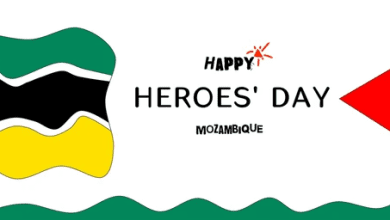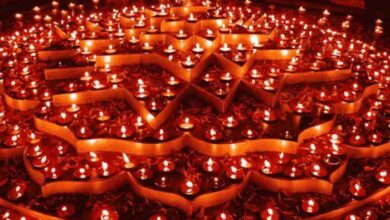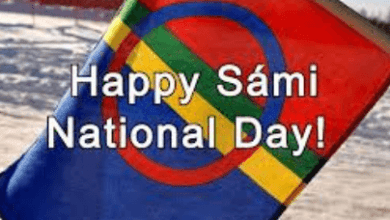People Power Day In Philippines 2024
Unveiling the Inspiring History of People Power Day in the Philippines
Explore the remarkable journey and significance of People Power Day in the Philippines, a testament to the strength of unity and democracy.
Read also:
Quick Facts;
- Date: February 25th
- Main Components: Peaceful demonstrations, civil disobedience, military defection, mass media coverage, religious support, political transition
- Popularity: High in the Philippines, moderate in other countries
- Pairings: Yellow clothing, “L” sign, flowers, songs, prayers
- Variations: EDSA Revolution, EDSA I, Yellow Revolution
Introduction
- The People Power Day in the Philippines is an important holiday observed every year on February 25. The holiday commemorates the public demonstrations that took place between February 22 and 25, 1986, which toppled the dictatorship of Ferdinand Marcos and restored democracy in the country.
- The People Power Day, also known as the EDSA Revolution, EDSA I, or the Yellow Revolution, was sparked by the assassination of opposition leader Benigno “Ninoy” Aquino Jr. in 1983, and the widespread fraud in the 1986 snap presidential election between Marcos and Aquino’s widow, Corazon “Cory” Aquino.
- The People Power Day involved millions of Filipinos from all walks of life, who gathered along Epifanio de los Santos Avenue (EDSA) in Metro Manila, as well as in other cities and provinces, to demand Marcos’ resignation and support Cory Aquino’s claim to the presidency.
- The People Power Day was supported by the Catholic Church, the media, the business sector, civil society groups, and some factions of the military and the police, who defected from Marcos’ camp and joined the people.
- The People Power Day was successful in ousting Marcos from power and installing Cory Aquino as the first female president of the Philippines, as well as the first female head of state in Asia.
- The People Power Day inspired other movements for democracy and human rights in the Philippines and around the world, such as in Poland, South Korea, Taiwan, Indonesia, and the Middle East and North Africa.
Related: Flag Day in Mexico 2023
Background
- Ferdinand Marcos was elected as president of the Philippines in 1965, and re-elected in 1969. He declared martial law in 1972, citing the threat of communism and civil unrest as justification.
- Under martial law, Marcos suspended the constitution, abolished the Congress, banned political parties, censored the media, and arrested and tortured thousands of his critics and opponents, including Ninoy Aquino, who was Marcos’ main rival in the 1973 presidential election that was cancelled.
- Marcos also amassed a huge fortune from corruption and plunder, while the country suffered from economic decline, poverty, and social injustice.
- Marcos lifted martial law in 1981, but retained his authoritarian powers and control over the military and the judiciary. He called for a snap presidential election in 1986, hoping to legitimize his rule and quell the growing opposition and discontent among the people.
- Cory Aquino, who became the leader of the opposition after her husband’s assassination, agreed to run against Marcos, despite having no political experience. She was supported by a coalition of various anti-Marcos groups, who adopted the color yellow and the “L” (for laban, meaning fight) sign as their symbols.
Related: National Engineer’s Day In Iran 2023
Events
- The 1986 snap election was held on February 7, 1986. It was marred by widespread violence, intimidation, vote-buying, and cheating by Marcos’ supporters and agents. The official results declared by the Commission on Elections (COMELEC) showed that Marcos won by a landslide, while the unofficial count by the National Citizens’ Movement for Free Elections (NAMFREL) showed that Cory Aquino won by a slim margin.
- The opposition and the people rejected the official results and staged massive protests and rallies, calling for Marcos’ resignation and Cory Aquino’s recognition as the legitimate president. The protests were dubbed as the “People Power” revolution, as they demonstrated the people’s collective will and strength to resist tyranny and injustice.
- The turning point of the revolution occurred on February 22, 1986, when Defense Minister Juan Ponce Enrile and Armed Forces Vice Chief of Staff Fidel Ramos, both loyalists of Marcos, announced their defection from the regime and their support for Cory Aquino. They barricaded themselves in two military camps along EDSA, and called on the people and the rest of the military to join them.
- In response, Marcos ordered the military to crush the rebellion, but the soldiers refused to fire on the civilians, who flocked to EDSA to protect Enrile and Ramos. The people offered flowers, food, prayers, and songs to the soldiers, and appealed to their conscience and patriotism. The people also prevented Marcos’ loyalist troops from advancing by blocking the roads with their bodies and vehicles.
- The revolution reached its climax on February 25, 1986, when Cory Aquino was sworn in as president in a simple ceremony at a club in Makati, while Marcos held his own inauguration at the Malacañang Palace. Later that day, Marcos and his family fled the palace by helicopter, and were airlifted by US planes to Hawaii, where they went into exile.
Aftermath
- The People Power Revolution ended Marcos’ 20-year dictatorship and restored democracy in the Philippines. It also paved the way for the drafting of a new constitution, the holding of free and fair elections, the establishment of democratic institutions, and the promotion of human rights and the rule of law.
- The revolution also had a lasting impact on the Filipino psyche and culture, as it instilled a sense of pride, dignity, and empowerment among the people, who realized their potential to change their destiny and shape their history.
- The revolution also inspired other movements for democracy and human rights in the Philippines and around the world, such as in Poland, South Korea, Taiwan, Indonesia, and the Middle East and North Africa, where people also rose up against authoritarian regimes and demanded freedom and justice.
- However, the revolution also faced challenges and criticisms, such as the persistence of poverty, inequality, corruption, violence, and political instability in the country, the failure to bring Marcos and his cronies to justice and recover their ill-gotten wealth, the resurgence of Marcos’ political dynasty and influence, and the disillusionment and apathy of some sectors of society.
PEOPLE POWER DAY IN THE PHILIPPINES WISHES, QUOTES, AND MESSAGES
TOP 20 PEOPLE POWER DAY IN PHILIPPINES WISHES AND GREETINGS
Here are 20 unique People Power Day wishes and greetings for the Philippines:
- “May the spirit of People Power Day continue to inspire us to stand up for justice and democracy. Happy People Power Day!”
- “On this special day, let’s remember the power of unity and the strength of the Filipino people. Happy People Power Day!”
- “Wishing you a People Power Day filled with hope, freedom, and the promise of a brighter future.”
- “Today, we celebrate the triumph of democracy and the resilience of the Filipino spirit. Happy People Power Day!”
- “Happy People Power Day! Let’s continue to work together to protect and uphold the principles of democracy.”
- “As we commemorate People Power Day, may we never forget the sacrifices of those who fought for our freedom. Salute to our heroes!”
- “May the flame of People Power continue to burn in our hearts, lighting the path towards a better Philippines. Happy People Power Day!”
- “Wishing you a day filled with the hope that comes from knowing that change is possible. Happy People Power Day!”
- “On this historic day, let’s cherish the values of democracy, unity, and peace. Happy People Power Day!”
- “Happy People Power Day! Let’s remember the past, celebrate the present, and work for a brighter future together.”
- “Today, we celebrate the victory of the Filipino people against oppression. Happy People Power Day to all freedom fighters!”
- “May the legacy of People Power remind us that our voices and actions can make a difference. Happy People Power Day!”
- “Wishing you a People Power Day filled with the strength to overcome any challenge and the courage to stand up for what is right.”
- “Happy People Power Day! Let’s honor the memory of those who paved the way for a brighter, democratic Philippines.”
- “On this day, let’s recommit to the ideals of freedom and democracy. Happy People Power Day, my fellow Filipinos!”
- “As we celebrate People Power Day, may the spirit of unity and change continue to inspire us. Happy People Power Day!”
- “Wishing you a People Power Day filled with the belief that we can overcome any obstacle when we stand together.”
- “Happy People Power Day! Let’s carry the torch of democracy and pass it on to the next generation.”
- “Today, we celebrate the triumph of the Filipino people. May the spirit of People Power continue to shine brightly. Happy People Power Day!”
- “On this special day, let’s unite in the name of democracy and progress. Happy People Power Day, my fellow Filipinos!”
TOP 20 PEOPLE POWER DAY IN PHILIPPINES QUOTES
Here are 20 unique quotes to commemorate People Power Day in the Philippines:
- “People Power is a testament to the indomitable spirit of a nation united for a common cause.” – Unknown
- “In unity, we find strength. In People Power, we find freedom.” – Anonymous
- “People Power Day reminds us that when ordinary people come together, they can achieve extraordinary things.” – Unknown
- “Democracy is not a spectator sport; it requires the active participation of its citizens.” – Corazon Aquino
- “People Power is not a one-time event; it’s a timeless spirit that keeps democracy alive.” – Anonymous
- “The strength of a nation lies in the unity and resolve of its people.” – Unknown
- “People Power is the voice of the people, the force that shapes the destiny of a nation.” – Benigno Aquino Jr.
- “Change begins when individuals unite with a common purpose, and People Power Day is a testament to that truth.” – Anonymous
- “Democracy is a gift we must cherish, protect, and exercise. People Power is the key to that exercise.” – Unknown
- “People Power Day is a celebration of the Filipino spirit, resilience, and the triumph of hope over oppression.” – Ferdinand Marcos
- “In the darkest of times, the light of People Power shines the brightest.” – Anonymous
- “The Philippines showed the world the power of peaceful resistance, and it forever changed our history.” – Cory Aquino
- “Democracy is not a guarantee but a constant endeavor. People Power Day reminds us to work for it every day.” – Unknown
- “People Power is a force that can move mountains, topple dictators, and shape the course of a nation.” – Benigno Aquino Jr.
- “When we stand together, we become an unstoppable force for positive change.” – Anonymous
- “People Power Day is a reminder that courage and unity can conquer even the most formidable of challenges.” – Unknown
- “In the story of People Power, the heroes are the ordinary people who rose to the occasion.” – Corazon Aquino
- “Democracy is not just a word; it’s a way of life. People Power Day is a celebration of that way of life.” – Ferdinand Marcos
- “People Power Day serves as a beacon of hope and a call to action for all those who believe in freedom and democracy.” – Anonymous
- “The legacy of People Power is etched in our history, reminding us that change is possible when we stand together.” – Benigno Aquino Jr.
TOP 20 PEOPLE POWER DAY IN PHILIPPINES MESSAGES/SMS
Here are 20 unique messages to commemorate People Power Day in the Philippines:
- “Happy People Power Day! Let’s continue to stand united for a brighter and more democratic Philippines.”
- “On this day, we remember the strength of the Filipino spirit. Happy People Power Day, everyone!”
- “May the ideals of freedom and democracy continue to flourish on this People Power Day. Stay inspired!”
- “Happy People Power Day! Let’s honor the heroes of our past and work for a better future together.”
- “Wishing you a day filled with the spirit of People Power, reminding us that change is possible.”
- “On this People Power Day, let’s celebrate our shared history and look forward to a more just and democratic tomorrow.”
- “Happy People Power Day! Never forget the power of the people to shape the course of a nation.”
- “May the legacy of People Power Day inspire us to be agents of positive change in our society.”
- “On this special day, let’s remember the sacrifices made for our freedom and renew our commitment to democracy.”
- “Happy People Power Day! Let’s carry the torch of hope, unity, and change for the generations to come.”
- “Wishing you a day filled with the hope and promise that People Power brings to our beloved Philippines.”
- “May the spirit of People Power continue to guide us towards a future of progress and equality. Happy People Power Day!”
- “On this historic day, let’s recommit to the values of democracy and justice. Happy People Power Day, my fellow Filipinos!”
- “Happy People Power Day! Let’s honor the memory of those who paved the way for a more democratic Philippines.”
- “Today, we celebrate the triumph of the Filipino people. May the spirit of People Power continue to inspire us all.”
- “On this People Power Day, let’s unite in the name of democracy, peace, and prosperity for our nation.”
- “Wishing you a day filled with the strength and courage to overcome any challenge, just as we overcame tyranny on People Power Day.”
- “Happy People Power Day! Let’s stand together and make our voices heard for the greater good of our country.”
- “May the flame of People Power continue to burn in our hearts, lighting the path toward a more democratic Philippines. Happy People Power Day!”
- “On this day, let’s reflect on the significance of People Power and the responsibility it brings to safeguard our democracy. Happy People Power Day, my friends!”
Conclusion
The People Power Day in the Philippines was a historic and momentous event that changed the course of Philippine history and influenced the world. It was a testament to the power of the people to overthrow a dictatorship and restore democracy through peaceful and nonviolent means. The People Power Day also left a legacy of hope, courage, and solidarity among the Filipino people, who continue to celebrate and commemorate the anniversary of the revolution every year on February 25, which is declared as a national holiday. The People Power Day also challenged the Filipino people to uphold and defend the values and principles of democracy, human rights, and the rule of law, and to participate actively and responsibly in the affairs of the nation.



